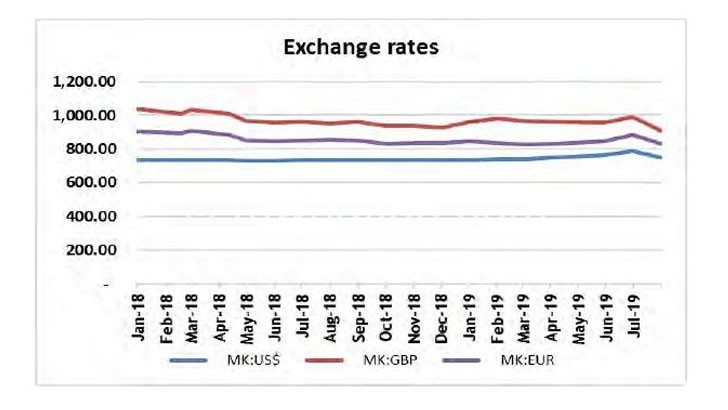RBM sees kwacha remaining stable
The Reserve Bank of Malawi (RBM) Governor Dalitso Kabambe says the kwacha is expected to remain relatively stable against the dollar, observing that the recent local unit’s slip was just a “blip”.
The governor said in an interview in Lilongwe on Wednesday that the local unit has now reclaimed its stability, which was lost recently manifested by its depreciation between May and June.

After averaging around K730 to the greenback for over three years, the local currency depreciated to a three-year low of K778 against the dollar at the end of June, driven by speculation from importers clearing their import bills while investors took a wait-and-see approach ahead of the May 21 Tripartite Elections.
As a result of this, many traders front-loaded their payments before the elections, which destabilised the exchange rate.
Speaking on the sidelines of Ndizotheka Eminent Speaker Series jointly organised by the National Planning Commission (NPC), Mwapata Institute and Michigan State University, Kabambe was over the moon following the appreciation of the kwacha against other major convertibles.
He said: “Certainly, I am rejoicing and I am happy about it. I did say that it was just a blip and I did say that it was just a mismatch between supply and demand of dollars at that time.
“I also did say that it
[depreciation]will go away and it has now gone away. The kwacha has come back and is stable. Looking ahead, we see that the kwacha will continue with this stability.”
Business News analysis and spot checks in some authorised dealer banks (ADBs) yesterday show that the kwacha was selling at around K740 against the dollar.
At NBS Bank, for example, buying rate of a unit of a dollar was K718 against a selling rate of K740, representing a midrate of K729.
According to RBM market statistics, an average buying rate of a unit of a dollar was K721.8683 while selling rate was K742.9619, representing a midrate of K732.42.
“We are at a juncture where we have stabilised our economy. Inflation has been in single digit and interest rates have been going down at a record low as we had them in the 1980s,” said Kabambe.
Towards the end of July, Financial Market Dealers Association (Fimda) president Patricia Hamisi projected a recovery of the kwacha on account of improved inflow of tobacco dollars which she said would help in supply challenges of foreign exchange.
“We have also seen that there has been reduced Malawi kwacha in the market. The central bank has continuously worked on tightening the monetary policy to mop out liquidity,” she said. Finance, Economic Planning and Development Minister Joseph Mwanamvekha earlier said the recent depreciation was ‘transitory’ mainly due to stocking by traders, importation of election-related materials and the slow start of the tobacco marketing season.





